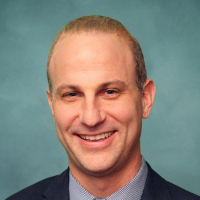 Conference Speakers
Conference Speakers
Cultural Speakers
Cultural practices, beliefs, and norms play a very important role not only in delivering health care to clients and patients, but also in how that health care is received and what outcomes are possible. Diversity within those beliefs and practices, and as a result of available resources or social economic/demographic circumstances, must be fully understood in order for health care professionals to provide the best care possible no matter where they are in the world, or what culture they are practicing within.
At GOLD Perinatal Care, we understand the importance of Culture and Diversity in health care, and we are working hard to bring you speakers and presentations from around the world that will help you understand the patients and clients you are working with. Discovering how health care is provided and received in other countries and cultures around the world can have a positive impact on our own professional practice. Given that culture is defined by much more than political borders, GOLD Perinatal Care invites speakers to share their knowledge and expertise about perinatal health care from a geographically-based focus or a people-group focus from within a particular set of beliefs, lifestyle or minority. This year, our Culture and Diversity speakers will be presenting on:
 Dr. Speakers Full Name
Speaker Credentials
Dr. Speakers Full Name
Speaker Credentials

Annet Mulder first became interested in breastfeeding in the year 2000, when she became a mother for the first time. During and because of her own breastfeeding experiences, in 2002 she became a volunteer with the Dutch breastfeeding Organization and in 2008 sat for and passed the exam administered by the International Board of Lactation Consultant Examiners. As an International Board Certified Lactation Consultant, she now
Annet Mulder first became interested in breastfeeding in the year 2000, when she became a mother for the first time. During and because of her own breastfeeding experiences, in 2002 she became a volunteer with the Dutch breastfeeding Organization text text text text more name mulder first became interested in breastfeeding in the year 2000, when she became.
 Dr. Speakers Full Name
Speaker Credentials
Dr. Speakers Full Name
Speaker Credentials

Speakers (5191)
Dr Leighl’s main interest is in developing new treatments in lung cancer and improving lung cancer diagnostics. She is involved in clinical studies of novel agents for the treatment of thoracic cancers, has led several international and cooperative group studies in lung cancer and has served as a member of the Lung Disease Site Group Executive of the Canadian Cancer Clinical Trials Group. She was Co-Chair of the CCTG Committee on Economic Analysis, Congress Co-President of the 2018 World Conference in Lung Cancer, and serves on multiple committees including the ASCO Thoracic Guidelines Advisory Group, is co-section editor of The Oncologist and Current Oncology, an editorial board member of the Journal of Thoracic Oncology, British Journal of Cancer, and is a member of the IASLC Quality and Value Committee. Previously she served as Web Editor of the Journal of Thoracic Oncology, on the editorial board of the Journal of Clinical Oncology, the Royal College of Physicians & Surgeons of Canada Medical Oncology Examination Board and more. She also served as President of Lung Cancer Canada from 2009 to 2016, and serves on the Scientific Advisory Board of the Lung Cancer Foundation of America, and was recently elected to the Board of Directors of the Americas Health Foundation.




